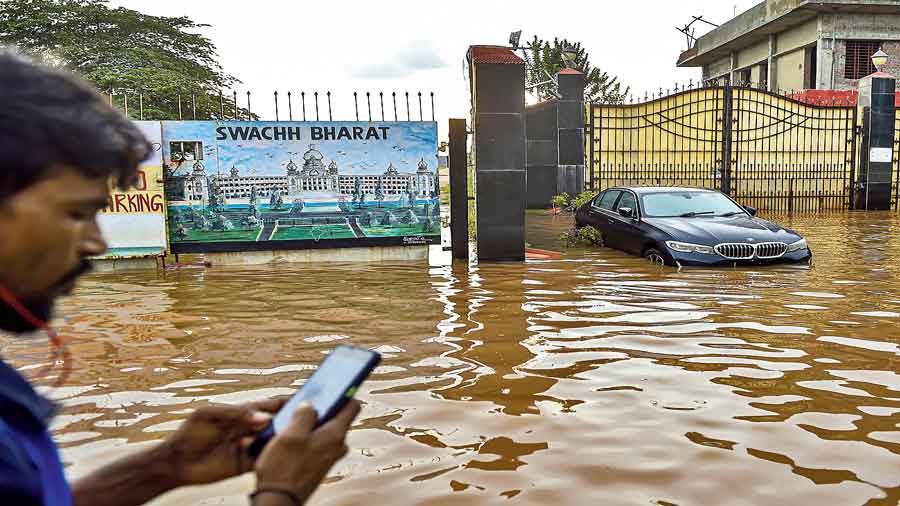Is the future of metropolitan living unfolding in waterlogged Bengaluru? The answer is likely to be in the affirmative. Torrential showers — one of the heaviest that the city has ever received in September — have led to flooding, power outages and shortages in essential supplies. Unprecedented rainfall is no longer a freak phenomenon. Compounding the problem is the prevalent template of urban planning that turns a blind eye to the flouting of a city’s ecological red lines. Bengaluru is a case in point. Its lakes, tanks, green spaces have been encroached upon. Exponential, but faulty, growth, tottering drainage systems, municipal oversight, flouting of environmental norms leading to the building of plush high-rises on waterbodies, the builder-corporation nexus, among other transgressions, have led nature to strike back. These warts, incidentally, are common to most Indian cities. Calcutta is encroaching upon the wetlands that remain even as it watches Bengaluru’s plight in shock; Hyderabad is vulnerable to flash floods; Mumbai is threatened with submergence. The political response to Bengaluru’s troubles has also unfolded along predictable lines with the ruling Bharatiya Janata Party and its principal rival, the Congress, trading charges. The truth of the matter is that successive governments, irrespective of political colour, are responsible for urban misgovernance in that city. Another distressing feature about the discourse on urban calamity, including the one in Bengaluru, is its asymmetry. The hardship of affluent citizens certainly deserves resolution. But how much of public attention is being directed at the urban poor and the migrants?
That Indian cities require a charter of comprehensive urban renewal is obvious. Some elements of this charter are bound to be common: regulated real-estate growth, protection of land and water resources, desilting rivers and channels, urban afforestation — including mangrove plantations — and so on. These measures must be complemented by newer interventions: the greening of transport, investments in climate resilient infrastructure, modern management of riverine settlements. But the missing piece in this blueprint is public commitment. As long as urban India does not take an interest in the environmental parameters of cities and refuses to hold politicians accountable for lapses, Bengaluru or any other city is unlikely to be spared the biblical flood.










